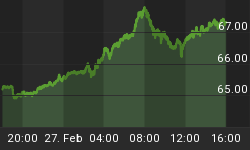The now infamous “Nigerian Prince” was never a “prince” and was never royalty of any kind. Instead, he was a suspended advisor to the local governor in one of Nigeria's states. He didn't stop at sending you messages with promises of untold riches in return for your bank account information. More recently, he’s been scamming the U.S. federal government’s jobless benefits.
For the “Nigerian Prince”, COVID-19 has been a windfall. But he’s not alone. As much as $400 billion dollars in unemployment benefits may have fallen, or could fall, into foreign hands, according to some estimates. And it’s been “easy money”.
The “Nigerian Prince” is now known as Abidemi Rufai, and he’s been in US custody since his arrest in May at the JFK International Airport in New York as he prepared to fly first class back to Nigeria.
He is accused of using the identities of more than 100 Washington residents to steal more than $350,000 in unemployment benefits from the Washington State Employment Security Department (ESD) during the COVID-19 pandemic last year.
The Department of Justice document shows that the Nigerian allegedly carried out the fraud by using the stolen identities of American workers.
“In so doing, Rufai caused and attempted to cause the Employment Security Department to pay out federal and other unemployment benefits in excess of $350,000, and fraudulently caused other states to pay out additional benefit payments,” Department of Justice document said.
Rufai is also charged with trying to defraud the Internal Revenue Service of nearly $1.6 million.
According to the IRS, Rufai filed 652 fraudulent tax returns on behalf of taxpayers whose identities he had stolen. The agency’s investigation showed the scheme netted Rufai nearly $900,000, since many of the returns were rejected by the IRS, who had Rufai under investigation for years.
Wire fraud is punishable by up to 30 years in prison, when it relates to benefits paid in connection with a presidentially declared disaster or emergency, such as the COVID-19 pandemic.
Since early last year, the vultures have been descending on the easy money opportunity provided by the pandemic.
The coronavirus pandemic has caused a 4,800% increase in unemployment fraud cases.
According to the Labor Department estimates, in 2020 the federal government lost at least $60 billion on fraudulent or improper unemployment payments.
Yet, according to an estimate by ID.me fraud-detection service, unemployment benefits fraud could easily reach $400 billion. That enormous figure represents nearly half of stimulus unemployment payments. And they claim that most of it ends up in the hands of foreign crime syndicates.
Haywood Talcove, the CEO of LexisNexis Risk Solutions, told Axios that at least 70% of the money stolen ended up in China, Nigeria, Russia and elsewhere.
Some of these syndicates have organized low-wage teams to file phony claims, while others have been able to access the money by stealing personal information or buying it on the dark web.
The Federal Trade Commission (FTC), a consumer protection agency, received 1.4 million identity theft reports last year, more than double compared to 2019. Nearly half million people reported that their information was misused to apply for a government benefit, such as unemployment insurance. A year prior, that number was 20,000.
















